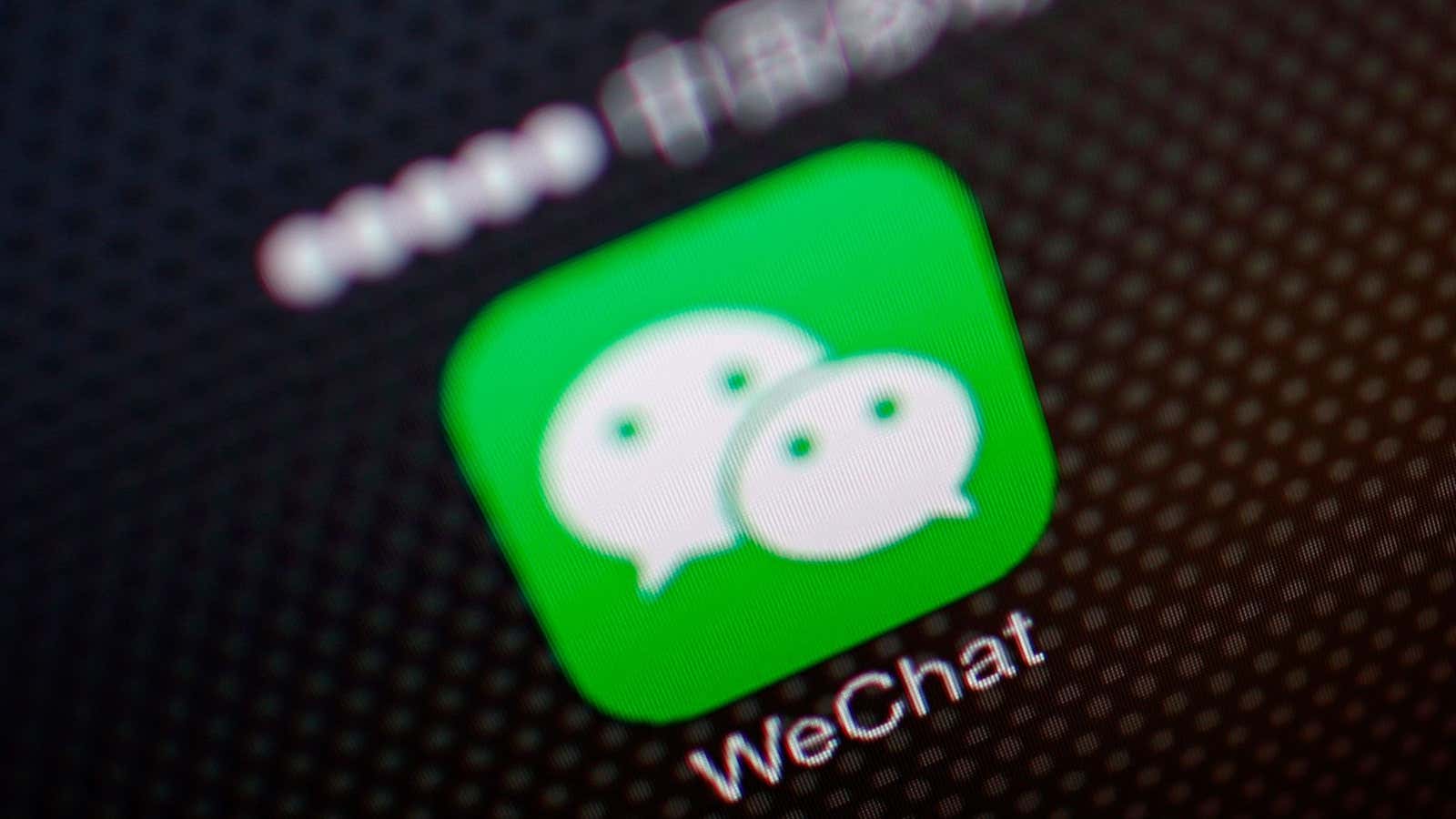A new instant-messaging tool called Bullet Message has quickly become the most-downloaded free offering on Apple’s App Store in China. Among those trailing it, for now, is the ubiquitous WeChat, a rival app from internet giant Tencent that’s widely considered essential for daily life in China. WeChat’s nearly 1 billion users rely on it to pay bills, hail cabs, and much else in addition to sending messages to one another.
Bullet Message, by contrast, keeps things simple. It offers a few features that are painfully missing in WeChat, and they’ve proven popular enough to fuel its meteoric rise.
In WeChat, users communicate primarily by sending voice, as opposed to typed-out, messages. Also known as “push to talk,” this approach works well in China, though not as well in many other cultures, where users dislike the idea of speaking or playing messages loudly in public.
But playing voice messages can be a problem in noisy environments, and there might be times when Chinese users, too, crave a little more discretion. With that in mind, the app generates real-time transcriptions of spoken messages, and includes the audio clip so users can check for accuracy. Two Chinese artificial intelligence companies, iFlytek and Trio, developed the technology behind the feature.
Huxiu, a media outlet, says the transcription feature is accurate 97% of the time in Mandarin (link in Chinese). Some Chinese dialects work, too, and more will be added in the future. English also works, though only with basic sentences, Quartz found.
Another feature fueling the app’s popularity relates to navigation. On WeChat, going through one’s voice messages can be daunting, involving opening dialog boxes for each message. In Bullet Message, by contrast (though only in the Android version for now), users can send audio replies to various messages without leaving the message list. Of course, one might miss something important by not listening to a message in full before replying to it.
Bullet Message was launched by Chinese smartphone maker Smartisan and developed by Kuairu Technology. Both companies are based in Beijing. Smartisan is an investor in Kuairu, which recently completed a funding round of about $21 million (link in Chinese).
Smartisan launched Bullet Message on Aug. 20 and watched it reach the top of the charts on Aug. 24 (link in Chinese). Many users are inviting friends to try Bullet Message via QR codes shared within WeChat.
Bullet Message’s quick rise is also due in part to the popularity of Smartisan’s founder, Luo Yonghao. An English teacher turned internet celebrity, Luo has more than 15 million followers on social network Weibo and is known for staging entertaining product launches that people pay to attend. Ticket sales generated by a Smartisan event in Beijing in May reached $700,000.
It remains to be seen whether Bullet Message will become a true challenger to WeChat. Luo recently said on Weibo (link in Chinese) that it “wouldn’t be realistic to uninstall WeChat.” But he also noted that Alipay, a popular payment platform, will soon be accessible through Bullet Message. No doubt other features will follow.
